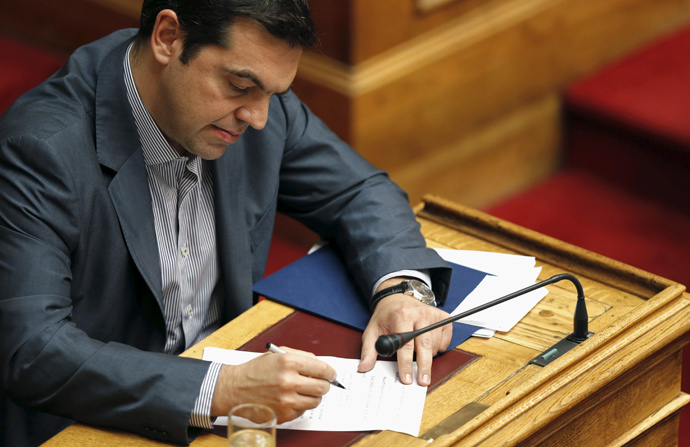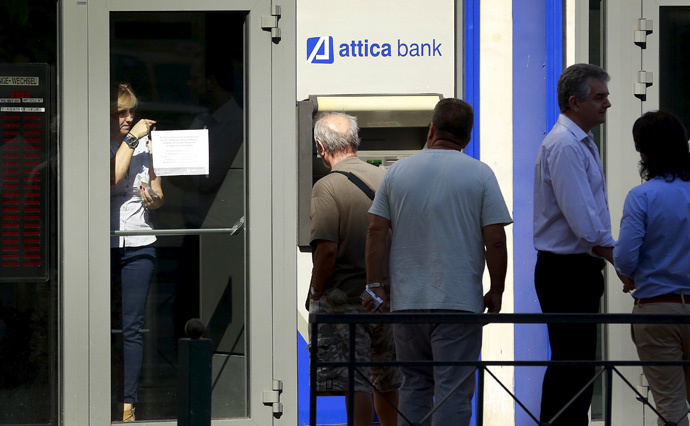5 key points in landmark Greek debt accord

Seventeen hours of talks, more than five months of tough negotiations between Greece and its international creditors… And a crucial accord seems to be found. RT explains the deal and what is in store for Greece.
1-What just happened?
Greece and the Troika of international creditors – the IMF, the ECB and the European Commission along with the eurozone leaders have agreed on a €80 billion plus bailout package over the next three years which should put an end to fears of Greece leaving the euro.

2-What are the details of the deal?
The key point is that the agreement, worth about €82-86 billion, means a Greek exit from the eurozone is no longer on the agenda.
In more figures, Greece agreed to set up a €50 billion fund to repay its debt, 50 percent of the fund will go to recapitalizing banks. The deal also includes €35 billion investment from the European Commission into the Greek economy.
READ MORE: Greek crisis endgame: EU agrees to allocate €80bn+ over 3 years
On the part of the EU, increased taxes, better sustainability of the pension system, as well as scaled up privatization lay at the heart of the requirements.
You can read the full list of terms EU placed on Greece here.
3-Why now?
The Greeks voted ‘No’ to the proposals from the creditors in the national referendum on July 5. This meant that Athens was closer to leaving the eurozone than ever. So, the creditors decided to take emergency steps to avoid the fear of a Greek exit would trigger a domino effect and mark the start of the end of the currency union, as Spain and Portugal could have followed the lead.
After failing to pay its €1.6 billion debt to the IMF by the July 1 deadline, Greece became the first eurozone country to default on its international obligations. On the same day the second bailout deal for Greece expired. Since 2010 the two aid packages for Greece are estimated to be worth €240 billion. The ECB turned down the Greek request to expand emergency liquidity assistance (ELA) to its lenders by €6 billion to tackle bank runs in the country. As a result, banks in Greece have been closed since then and daily cash withdrawals have been limited to €60.

4-What’s for Greece now?
Tsipras acknowledged that the proposals are complex, but Athens avoided state property transfer abroad, as well as financial strangulation and the destruction of the financial system.
However, banks are still closed, the stock exchange is not functioning and the country is cash-strapped with people only able to withdraw €60 a day.
Tsipras and new Greek Finance Minister Euclid Tsakalotos still have work to do to square the details of the deal. The Greek parliament has to approve all the reform laws by July 15 in order to receive the aid, according to Eurogroup President Jeroen Dijsselbloem.
5-What was the reason for the deadlock?
Greece and its creditors had been failing to meet halfway for more than 5 months.
Prime Minister Alexis Tsipras and his leftist Syriza party came to power in January on promises to put an end to years of austerity measures in Greece. The European negotiators demanded higher taxes, raising the retirement age, reducing pensions and cutting Greek military expenditures in order to lessen the €316 billion debt. Tsipras and his then finance minister Yanis Varoufakis were hard to budge in talks, and declined the proposals from creditors, calling them “absurd” and “blackmail”. The Greek government’s counterproposals were unacceptable to the eurozone, as the lenders criticized them for lack of concrete proposals.












